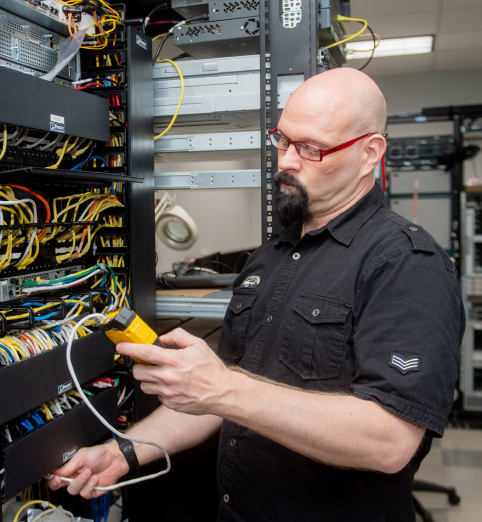As an IT executive, I spend most of my days sitting in meetings with either my team, clients, or both, contemplating the world of IT infrastructure and business solutions that are created to drive business and the bottom line. And, of course, with that comes a plethora of IT jargon, acronyms, and more, along with the philosophical debates as to where technology will take us in the coming years. But at every turn, it shocks me that the world seems to talk about hardware, software, virtualization, and the list drones on—rarely addressing the human side of the equation.
As we continue to evolve our technology, impacting business and people on a global scale—data driving every decision, every online social interaction, and more, we know that all this has affected how we live and how we too are evolving as a global society. But what about the evolution of the IT person in general? How often does it come up in conversation that the talent and capabilities of those we hire, those we have worked with for years—the expectations they must fill are changing as rapidly as the technology that surrounds us. I’ll bet a good bottle of Scotch that the answer is probably seldom to never.
And here is why. The IT person and associated persona has itself become its own cultural stereotype. And the stereotype like so many other industries has created job roles and titles that are virtually interchangeable from company to company, country to country. But the evolution of IT isn’t just about the technology, it’s about the people who must embrace and manage the new world where the IT department is starting to have little to nothing to do with business units—they no longer rely on the IT team to solve their daily challenges.
In the new era of business, departments and business units are generating their own new skill sets—ones that are a hybrid of old-school technological know-how paired with highly focused skill sets entirely foreign to the old-school IT role. Examples of this probably surround you every day. For instance, procurement departments now have highly specialized hybrid roles whereby the talent has insight into IT systems, but live and breathe ERPs, business processes, and more—working as a team member and, depending on the size of the company, may not know anyone from IT.
I even think of our own team and this new world we have entered. We have a person within our marketing department who is literally the CTO of marketing—highly skilled in IT, but works solely on application integration and development within an extremely verticalized field. If you’d asked me ten years ago if I would have someone like that on my team, I would have spit out my Smirnoff Ice (don’t judge me).
And far beyond our own internal departments, we have taken great steps to find this new paradigm of talent within our customer-facing teams. No longer is it the norm to have someone who simply knows IT from the hardware, software side. Our boots-on-the-ground team must have in-depth experience and insight that crosses all business silos—understanding the incredibly complex ecosystem that now marries business infrastructure with business goals on a personal level.
So, to answer the question, what in the hell do humans have to do with IT? Apparently, everything. At the end of the day, it’s about the worlds of artificial intelligence and business intelligence on a human scale colliding to make the complex work for people. After all, machines don’t run our lives, we run them—at least for now. But please let me know if you see an Arnold Schwarzenegger clone walking around with sunglasses and a leather jacket looking for someone named John Connor—I’m totally prepared to throw a bottle of Smirnoff Ice at him to defend our way of life.


